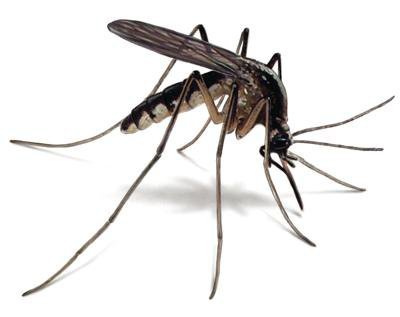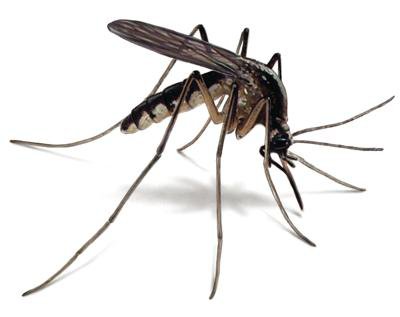As if an active population of adult mosquitoes that are testing positive for the West Nile Virus wasn’t enough, San Joaquin County mosquito abatement experts now have to worry about a new type of mosquito that can carry both the Zika virus and other diseases such as dengue fever that has surfaced in neighboring Stanislaus County.
Last month public health experts warned that a pair of Aedes aegypti mosquitoes were discovered in traps on the east side of Modesto – indicating a possible breeding population – which long confirmed the fears of vector control experts that have been waiting for the mosquitoes to work their way north.
“Now it’s just only a matter of time before we detect them in San Joaquin County,” said San Joaquin Mosquito and Vector Control District spokesman Aaron Devencenzi. “We check the traps that we have in the South County near the border with Stanislaus County regularly, and just recently our guys have more traps in that area so that we can monitor what is happening.”
Unlike the mosquitoes that carry West Nile Virus – which are active predominantly at dawn and at dusk and are more densely packed in rural areas – the Aedes aegypti mosquito is active during the day and can commonly be found in urban and populated areas. If that wasn’t enough of an issue, Devencenzi said that eradication is extremely difficult because the mosquitoes are able to lay their eggs in only a capful of water, and once they are laid, they are viable even without water present for up to six months.
That means, Devencenzi said, that the eggs could typically weather an entire dry season, and when water is reintroduced, the larvae is ready to hatch.
But even with experts monitoring the situation closely and awaiting what appears to be inevitable, Devencenzi said that he doesn’t want residents to forget that there are active mosquitoes in San Joaquin County right now that are carrying the West Nile Virus and proper precautions need to be taken to prevent the spread of illness.
“This is something of concern, but we also don’t want people to overlook the fact that West Nile Virus is already here and has the potential to make people sick,” Devencenzi said. “If people are going to be outdoors at dawn or at dusk, we encourage them to take the proper precautions like they always have and be aware of mosquitoes that they may see at other times as well.”
In order to help fight the conditions that make mosquito breeding possible, and to protect against mosquitoes that possibly carry West Nile or other transmittable viruses, San Joaquin County Public Health Services recommends a number of steps to be taken, including:
Checking your property for standing water and eliminating it as needed. Abandoned swimming pools were a major breeding ground for mosquitos during the economic downturn, but something as small as an old tire or a bucket that has collected rain or sprinkler water can provide the environment necessary for mosquitos to breed.
Applying mosquito repellant that contains the ingredients DEET or Picaridin when outdoors in accordance with usage instructions.
Avoiding being outside when mosquitoes are the most active, which is typically at dawn and at dusk, and especially for the first two hours after sunset.
Wearing long pants, long-sleeved shirts, and other protective clothing when forced to be outdoors – especially during peak activity times.
Making sure that windows and doors have tight-fitting screens to keep active mosquitoes outside of the home.
The virus is typically carried by birds and transmitted by mosquitos who feed on their carcasses and then bite humans. The State of California has a website to report dead birds for removal and subsequent study that can be found at www.westnile.ca.gov.
To report unusually strong mosquito infestations or daytime biting contact the San Joaquin Mosquito and Vector Control District at 209.982.4675 or visit them on the web at www.sjmosquito.org.
To contact reporter Jason Campbell email jcampbell@mantecabulletin.com or call 209.249.3544.





